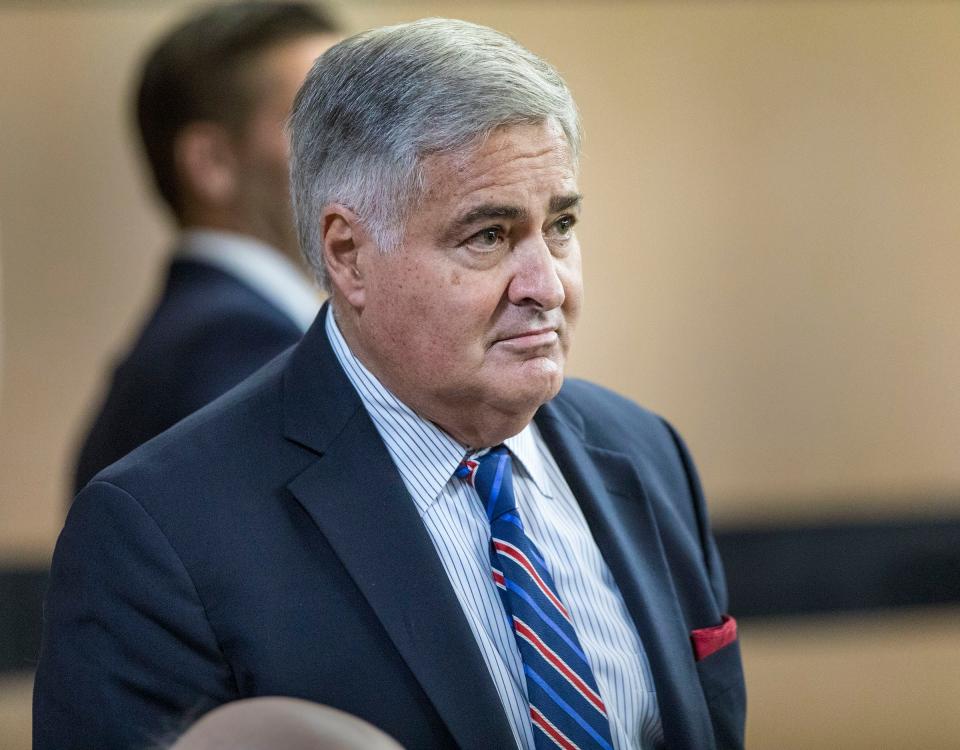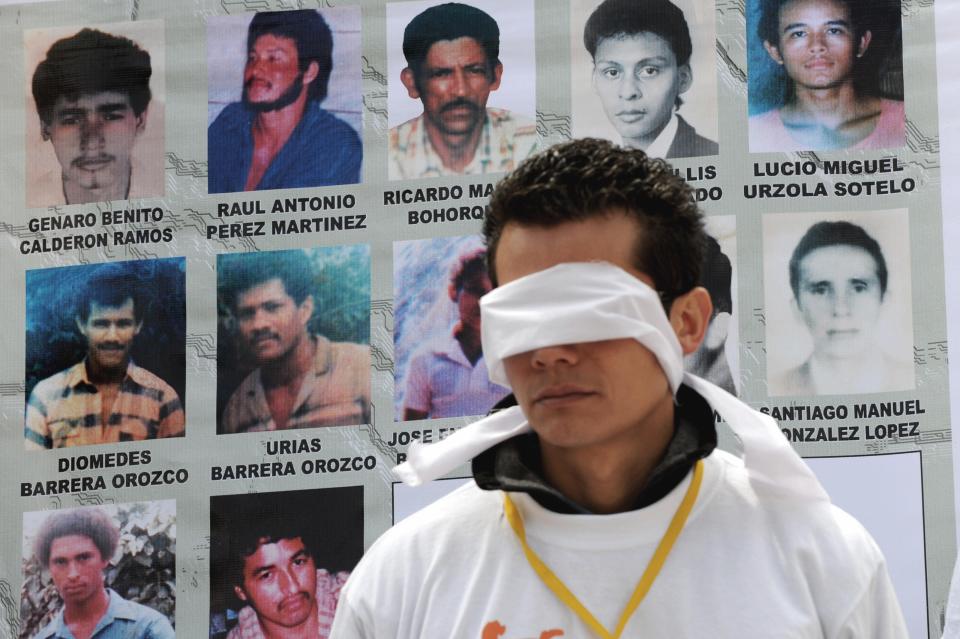Trial against Chiquita, accused of helping terrorists kill thousands, finally begins
WEST PALM BEACH — The families of men and women killed by Colombian terrorists are finally facing off against the corporate giant accused of financing their loved ones' murder: Chiquita Brands International.
The trial against Chiquita follows more than a decade of litigation over illegal payments the banana giant made to Autodefensas Unidas de Colombia, a militant group known to kidnap civilians in the middle of the night and leave their mutilated corpses for their families to find.
Attorneys for Chiquita say the company had no choice but pay the terrorists nearly $2 million in the late 1990s and early 2000s to protect its Colombian employees from further violence.
Chiquita suit: Colombian guerrillas’ victims fight to sue banana giant in U.S. court
In a federal courtroom in West Palm Beach on Tuesday, lawyers for the victims’ families said the opposite is true; that Chiquita willingly partnered with the AUC in order to protect its profits — not its people — and to quell employee unrest by any means necessary.
This month’s trial comes almost two decades after Chiquita executives pleaded guilty in a New York courtroom to financing the AUC. The company made a deal with federal prosecutors that cemented its conviction but spared it additional criminal charges, allowing executives to move on in exchange for a $25 million fine.

No executive spent a day in jail for their crime, West Palm Beach attorney Jack Scarola said Tuesday. No surviving victim saw a penny of the payout. Seventeen years later, he said, it’s up to jurors to decide whether and how the victims of the Chiquita-funded terror will be compensated.
Chiquita paid terrorist group 'knowing the price was blood,' plaintiffs say
Scarola wove a yearslong geopolitical history lesson into a 90-minute opening statement Tuesday. Each time it neared the cusp of becoming a lecture, a vehement reference to "savage slaughter," mass execution, mutilation and torture yanked it back.
He, and Chiquita's attorneys after him, told jurors that the same climate and latitude that are best for banana growth are optimal for cocaine production, too. Militant groups vying for control over the drug market threw what Scarola called the “banana zone” into a bloody civil war.
When civilians fled, Chiquita saw opportunity. Scarola said it purchased abandoned land at bargain prices and hired thousands of Colombians to farm it, their profits ballooning even as the war worsened.
Lawsuit: South Florida polo icon accused of raping teenage girl, preying on others
From the conflict, two diametrically opposed terrorist groups formed: the FARC, a radical left-wing band that Scarola said threatened Chiquita with its pro-labor guerrilla warfare; and the AUC, the far-right group created in response to FARC’s threat.
While opposite in almost every other respect, Scarola said both groups were willing to resort to horrendous violence to spread fear and gain control.
Rather than retreat from the violence, the attorney said, Chiquita invested in it. Company executives met with AUC leader Carlos Castaño in 1997. Soon after, the first of more than 100 documented, disguised payments from Chiquita to the AUC began. Scarola said there’s evidence of even more undocumented payments, too.
Chiquita employees didn't pull the trigger on the automatic weapons that killed AUC victims, Scarola said, but he urged jurors to consider the company as liable as the masked men who did.

Chiquita attorney: Banana company was a victim, too
Cincinnati attorney Michael Cioffi told a different story. He said that during that 1997 meeting with AUC leadership, Castaño sent a "clear but unspoken message" that Chiquita's failure to pay up would result in harm to the company's people and property.
"Chiquita was extorted over and over," Cioffi said Tuesday. He called the company, which is headquartered in Ohio but has corporate offices in Fort Lauderdale, as much a victim of the AUC as the plaintiffs who are suing it. "Right from the get go, there was no question that Chiquita was extorted."
Cioffi said Scarola's portrayal of the FARC's and AUC's ideological differences were "pure myth," dismissing the notion that the AUC's group of narco-terrorists had Chiquita's best interests in mind. Where Scarola argued that Chiquita could have retreated from Colombia without sacrificing its profitability, Cioffi said "cutting and running was not an option."
He told jurors that Chiquita was a force for good in an otherwise chaotic environment. He touted its "gold-standard work environment" and top-notch produce, promising jurors that over the course of the trial, they'll hear from employees who agree that Chiquita acted with their safety in mind.
The trial, which resumed Wednesday, is expected to last at least one month. More than 7,500 people who lost loved ones during the AUC’s gruesome campaign have filed suit against Chiquita. The suits from around the country were consolidated and are being considered by U.S. District Judge Kenneth Marra in West Palm Beach.
Hannah Phillips is a journalist covering public safety and criminal justice at The Palm Beach Post. You can reach her at hphillips@pbpost.com.
This article originally appeared on Palm Beach Post: Trial against Chiquita, accused of aiding terrorists, begins in South Florida

